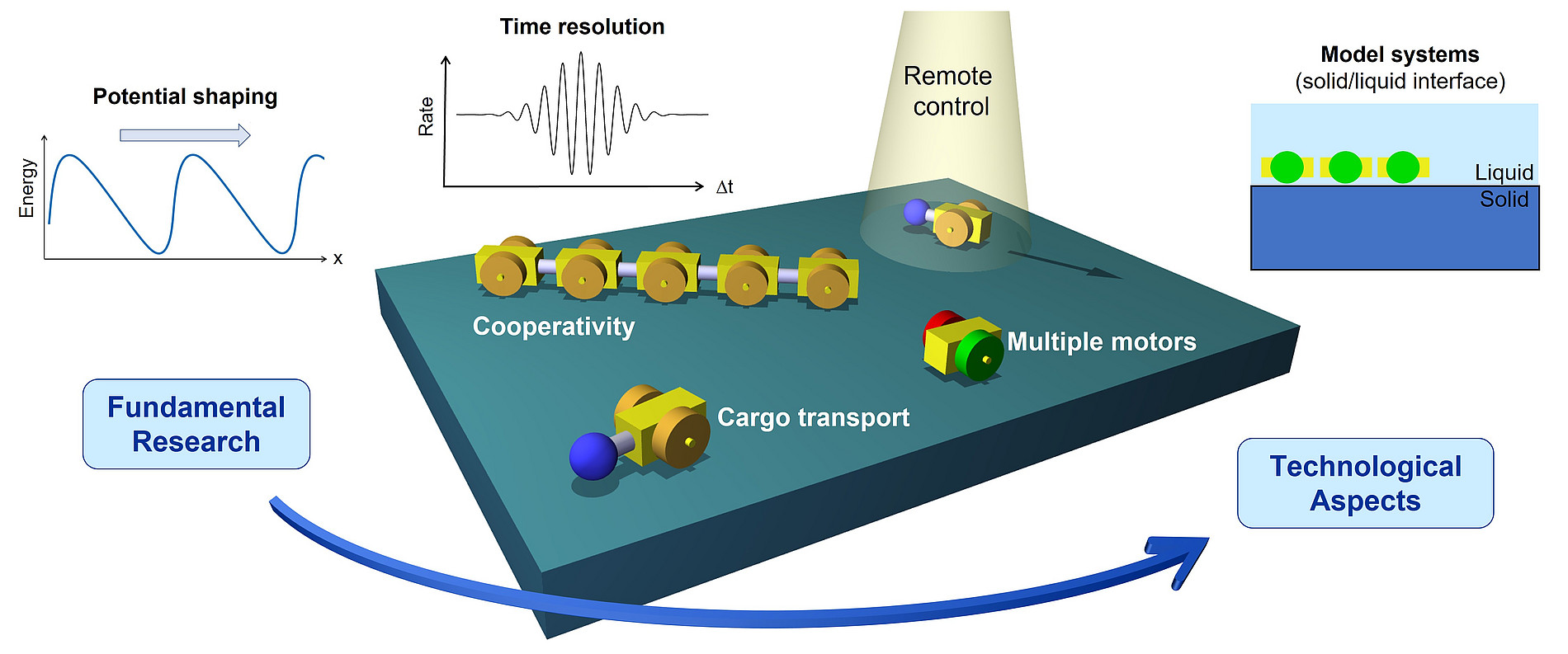AMOS project
The AMOS (Adsorbate Motors: Tricking Microscopic Reversibility on Surfaces) project is an Advanced Grant from the European Research Council (ERC), which started in January 2024 with a duration of 5 years.
This project represents a breakthrough approach to achieve unidirectional motion on well-defined surfaces, realize cooperative motor activity, control flow processes and transport cargo at the atomic scale. It is based on molecular surface motors that overcome microscopic reversibility by controlled modulation of the surface potential energy and can have large effects in different domains. Light is used to stimulate molecular motion, which offers great versatility. The stimulus is thus applied remotely to many molecules, while characterization is performed at the single-molecule level, allowing statistical analysis of trajectories in two dimensions.
Different motor concepts are used to modulate the potential energy of surfaces in a controlled manner and to address the main challenges in the field of molecular machines on surfaces. Different highly defined surfaces are used and novel adsorbate motors are investigated, i.e. molecules that only fulfill their motor function when they connect to a surface. Advanced motion control will be achieved by multiple motors. Complementary methods of microscopy, spectroscopy and interferometry with extremely high spatial, energetic and temporal resolution will be used - a key aspect of this project.
AMOS is concerned with both basic research and technological aspects: It will provide an elementary understanding of molecular motors with extremely high spatial (pm) and temporal (fs) resolution and investigate model systems for future applications with insights at the single molecule level. It will explore collectivity to enhance motor activity through cooperative effects in well-defined assemblies and also study these systems under environmental conditions with respect to controlled flow processes at the solid-liquid interface. Targeted chemical interactions will enable the transport and conveyance of single or few atoms with individual motor molecules, a fundamental step towards bottom-up construction of matter by molecular machines.
